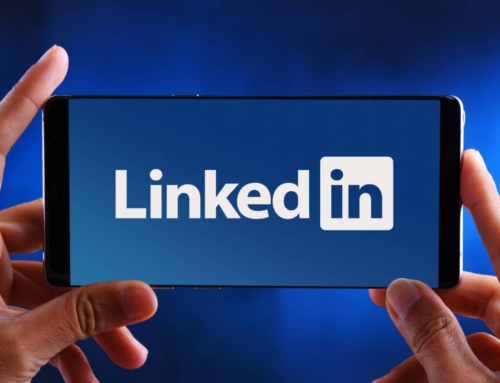By Janice Burch, Executive Resume Writer, Career Coach, Co-Owner at Pro Resume Center, LLC
So you got the pink slip.
Maybe it was a surprise, or maybe you saw it coming. No matter what, I am so sorry it happened. That really bites.
Guess what? You are not alone.
We've all been there. Most people, at one time or another in their career, have felt the cruel sting of the layoff, a puzzling discharge, a firing, downsizing or the good old “mutual parting of the ways.” Hey – Steve Jobs was fired in 1985 from Apple, and it was the best thing that could have ever happened to him, right?
Best advice? Don’t waste precious time sitting around crying about it or complaining to all your friends, family and former colleagues. Negativity breeds negativity and will only decrease or eliminate your job offers and networking ability.
 The most important thing for you to do now is get your mojo up and running so you can start networking and circulating your resume.
The most important thing for you to do now is get your mojo up and running so you can start networking and circulating your resume.
Below are the Top 10 Things you should do after being let go from a job. Make haste – the longer you wait, the harder it can be to pick up from the slump and more challenging it can be to explain the job gap to potential employers:
- Make a promise to yourself that you will not badmouth your former employer or specific people who were involved in the decision to let you go – unless it’s between the sheets to your wife or to your boyfriend in confidence. What’s done is done. If the discharge was unrelated to your performance there is a chance you could still get a return job offer once things improve at the company. Further, these people could be instrumental in helping you network for your next position. Even if you were gravely wronged in the discharge or feel like you were thrown under the bus by a colleague or supervisor, resist the temptation to gripe to everyone you know. Move on. Take the high road. Be positive about your new direction and you’ll find more people will be impressed by your maturity given the hand you were dealt, and are willing to help you find your next position.
- If needed, get a new email address. Oftentimes, people use their work email addresses for all their contacts – personal stuff like the son’s soccer team coach or the neighborhood group that you chair which hosts a picnic each year. You may have rolled your former business contacts into the work email too when you started the job you just lost. Just make sure you have your own contacts stored and saved somewhere in case these are people who can help with a job search or serve as a reference. But be careful not to break any company laws in doing this. After creating a new email or switching to one you already have that you would like to use for business and your job search, send everyone in your contact list a simple and brief message that the new address is the best way to reach you and that you are currently looking for a new position. More info to come if they are interested. Just stay positive. Don’t dis your former employer in any way, shape or form.
- Get references – unless you were expressly told to not contact clients or signed something to that effect upon your exit – get recommendations from colleagues, contacts or clients. Waste no time in asking if they would be willing to provide a written recommendation via email, or publicly on your LinkedIn profile. Or also, ask if they would simply serve as a job reference – ask them if they would agree to be a reference and ask them for a best phone number a potential employer can contact them during the day. Don’t waste any time in doing this – before rumor mills get going
 or they find out you were let go for reasons you completely disagree with.
or they find out you were let go for reasons you completely disagree with. - Get social NOW. There are just not enough exclamation points or space to put them to emphasize to you how important it is that you get your LinkedIn, Facebook and Twitter accounts up to snuff, or start them if you don’t have one. Make sure your posts stay positive about your search for your next chapter. Update your LinkedIn profile now with all the new skills you acquired and accomplishments from your last job. Get a new headshot/profile picture for it, too, if the previous one is outdated or does not show you at your best. Ask contacts via LinkedIn message to provide endorsements for you on the skills you have on your profile; ask previous supervisors and clients to write recommendations for you on your profile. Join key job networking groups and industry groups on LinkedIn. Stay relevant, stay engaged, write thoughtful posts and be heard. You will be discovered.
NOTE: You can hide your profile while you work on your updates so that every edit does not show up as an update to your network contacts. When the profile is fully ready to go, or you do the final touch and add the new profile picture or status update, reset the profile to public so it goes into your contact newsfeeds. See more on why LinkedIn is so important for your job search here…
- Facelift your resume. Forget about the old career objective: “I want to find a job in sales management where I can utilize my organizational and people skills with a progressive company that will reward me for my dedication.” Uh uh. No. That is how resumes of the past started out. Today’s resume has a hard hitting career statement at the top that showcases not only your skills and talents but how it relates to the position for which you are applying and how it can benefit the future employer. It explains why you will matter to them. See more resume tips and how to avoid resume pitfalls here…
- Research networking opportunities and follow through. Call up a neighbor, a friend, or an old boss and ask them to lunch. Let them know you’d
 like to pick their brain for a bit about what they might know about open positions, that you are now job hunting and would value their input. Networking is one of the best ways to find out about job opportunities that never get posted. Latest surveys show that about 45% of jobs NEVER GET POSTED. Don’t forget to have a resume handy – keep a few protected in a stiff envelope in the car – or a business card to pass along to help people remember you and what you are looking for. Which brings us to….
like to pick their brain for a bit about what they might know about open positions, that you are now job hunting and would value their input. Networking is one of the best ways to find out about job opportunities that never get posted. Latest surveys show that about 45% of jobs NEVER GET POSTED. Don’t forget to have a resume handy – keep a few protected in a stiff envelope in the car – or a business card to pass along to help people remember you and what you are looking for. Which brings us to…. - Get a cool business card. Make your own or use the cool template designs offered through VistaPrint.com or go to your local Staples store and they will help you design something. Usually you can get full color cards with an amazing design of your own or pre-designed template, for just $9.99 through VistaPrint. Look online for coupon codes for them to get it even cheaper than that. Buy just enough to hand out to people you see/meet/reconnect with during your job search. List your name, contact information, LinkedIn URL, a headshot, and a brief tagline of what you do (sales consultant, public relations expert, creative director, office management). This is a great tool to have when you are out networking, at the bar with friends on a Friday night, at an association luncheon or a high school reunion.
- Exercise. Seriously nothing will make you feel better – about yourself and your future – than if you get regular exercise. It not only helps your body, but your brain, too. How you feel about yourself is transferred to everyone you meet. It is incredibly important that you feel good about yourself as you embark on your next job hunt. Run, walk, bike, treadmill, do it every day for a week and you’ll start to feel like you cannot live without it. I promise. Excess weight will begin to drop off, energy will increase and your confidence will shoot through the roof so you’ll be ready to shine in that interview. Do this for your health, mindset and future.

- Assess your future goals. Take 15-30 minutes out of your day – maybe it’s in the steam room at the gym after you work out, or a walk with your dog, or just sitting on the patio at dusk – to take a good hard look at where you want to go with this next job search. Have a notepad with you. Determine if you have the skills or credentials you need to get you to the level you want and if so, what kind of position you hope to see yourself in three months. If you don’t have the skills – what can you do now to get them? What educational or online learning opportunities can you dive into right away to get those skills? Visualize your success. Manifestation is a very real tool – think it, believe it and make it happen – it results in great success for many.
- Do one thing each day to feed your mind. We are all a work-in-progress and no one knows everything. Realize this and your life will begin to change for the better as you look for new ways to soak up information about the world around you. Read information about the industry in which you want to work, watch a documentary about something of interest to you. Just do something that takes your brain from here up to HERE each day. You will be amazed at how much you can learn and how much more of an interesting person you will become to those around you. Having quips and anecdotes ready to share during interviews and while networking is incredibly valuable and shows you are well read and look beyond your own nose for knowledge.
Finally, remember what your mom used to say when the going got tough? When bullies seemed to be everywhere in 5th grade? Or after your best friend stole your college boyfriend, or colleague stole your idea at work and presented it as their own?
SUCCESS IS ALWAYS THE BEST REVENGE.

Wouldn’t your own success be a sweet cup of tea to sip from six months after being let go? Nod your head yes – and get moving!
You can do this – make it happen!
###
Pro Resume Center, LLC offers world-class career support services, from exceptional resume and materials writing to career coaching and interview coaching. We provide one-on-one consultations with EVERY purchase, connecting you with experienced, seasoned professionals who understand how to strategically position you for job search success. CLICK HERE to learn more.






